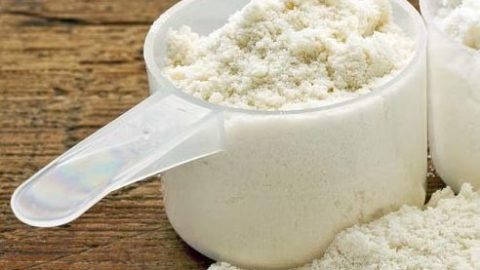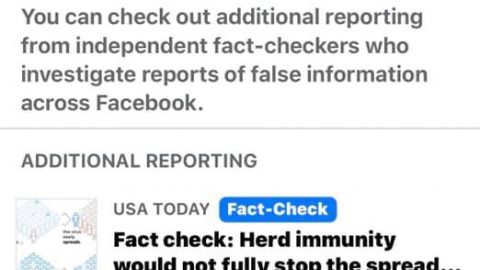“All natural” grass fed whey better then “regular” whey?
The latest trend in the highly saturated whey market is to push some “all natural” whey that’s grass fed and talk about the evils of supposed hormones in “regular” whey and then over charge for your “natural” whey. Is there any truth to it? Should you pay excessive amounts for this “natural” whey that’s grass fed and blessed by the Dalai Lama? There’s a number of issues to address regarding those claims, but in this write up I’m going to address the hormone claims and antibiotics as that seems to be of greatest concern to people.
One question that has popped up a few times in my email ‘in box’ relates to the issue of hormones in whey protein supplements. Are there hormones in your whey? It’s not a simple “yes” or “no” answer I am sorry to say, but the short answer is, people have nothing to fear.
Being an animal based product derived from milk, whey, like any animal based product, could potentially contain some naturally occurring hormone(s). The issue is, which hormone and in what amounts? Modern testing abilities being as sensitive as they are today, being able to search for things in parts per million (ppm), parts per billion (ppb) or even parts per trillion (ppt) in some cases, some hormone of some kind can be found in virtually anything we humans ingest, especially if it is derived from an animal source (though plants also often contain some naturally occurring hormones or hormone-like compounds).
So what’s the scoop on whey? The major concern seems to revolve around:
* Steroid based sex hormones (e.g., testosterone, etc.)
* Growth hormones and or growth factors (e.g., IGF-1, bovine growth hormone or bovine somatotropin, etc)
* Non-hormonal compounds such as anti biotic contamination.
I will attempt to address those in particular to clear up any fears or confusion over the matter.
Are there any steroids in your whey?
Steroid hormones being highly lipophilic (soluble in fat) will be found in the lipid (fat) portion of whey, or any milk based product for that matter. Any high grade whey isolate (WPI) is essentially fat free (read my article “The Whey it is” to understand the differences in the types and quality of whey proteins)
For example, CFM? isolate contains less than one tenth of one gram of actual dairy fat per 20 gram (20,000 milligrams) serving, which is approximately one standard scoop found in most products. The additional fat listed on the can of most whey isolate products generally comes from the addition of small amounts of lecithin, which is not an animal based lipid, and or the flavoring system being employed. An ion exchange whey – though not an optimal whey protein in my opinion as explained in “The Whey it is – will contain even less fat.
So, the reality is sex hormone levels in the lipid portion of milk fat and or fat in whey is so low as to be either non -testable or virtually non testable. Add to that fact that whey isolates are virtually fat free, and it’s easy to see this is a non-issue.
Are there any growth hormones in your whey?
As for growth hormone(s) such as bovine somatotropin (BST) and IGF-1, etc., that’s a bit more complicated. Growth factor hormones (e.g., BST, IGF-1, etc.) are protein based hormones (versus steroid based hormones discussed in the previous section) and thus, can be found in the protein fraction of animal based products, such as muscle, milk, etc. However, we will keep the discussion of these hormones specific to whey as that’s what this article is about right? Milk, and thus whey protein, does contain minute amount of BST.
BST is simply the bovine (cow) form of growth hormone cows produce naturally. In humans, it’s called Human Growth Hormone (HGH), which is produced in the pituitary gland and is also a popular anti aging drug many people are using to fight the effects of aging.
However, and this is the essential point, BST is not found in higher levels then would be found if the animals were not treated with BST. That is, whether they treat the animals with BST or not, they find the BST levels in milk to be found in minute amounts and in the normal “background” levels. What are the levels of BST found in milk? It ranges from approximately zero – ten parts per billion (PPB) and typical level found in milk is 3ppb. That translates into approximately 1 mcg (one millionth of a gram) per liter. That ladies and gents is what we call a truly miniscule amount.
To add to the above, protein based hormones such as BST-naturally occurring or otherwise – are quite delicate and digestion of these proteins means they are destroyed when ingested. To sum up, I consider the risk from BST to be again, a non-issue. Don’t forget, the issue has been looked at extensively by the scientific community.
For example:
The National Institutes of Health (NIH) looking at this issue stated “The composition and nutritional values of milk from bST-supplemented cows is essentially the same as milk from untreated cows… (M)eat and milk from rbST-treated cows are as safe as that from untreated cows.” (NIH Technology Assessment Conference Statement on Bovine somatotropin. JAMA. 1991:265:1423-1425).
* The Journal of the American Medical Association (JAMA) said on the issue “The FDA has answered all questions and concerns about the safety of milk from bST-supplemented cows…” (JAMA. 1990:264:1003-1005).
* The journal Science stated “The data evaluated by the FDA documented the safety of food products from animals treated with rbGH.” (Bovine Growth Hormone: Human Food Safety Evaluation. Science. 1990:249:875-884.).
Yes folks, no matter what hysterical issues some people have tried to raise with BST, the data and the facts simply does not support the hysteria. It’s a non-issue to human health. However, and it should be noted, that may not be the case for the cows themselves, just as large amounts of HGH can be problematic for humans, and that issue is currently being evaluated.
They may stop giving cows BST due to the health issues it presents to cows, but not due to any health issues to humans. So read my lips here gang, it won’t matter if the milk is taken from “organic” non BST treated cows or not, the BST levels appear to remain the same and are (a) found in miniscule amounts and (b) in all probability are destroyed during digestion. Yes, there can differences in the amounts of some compounds (pesticide for example) between some organic foods (e.g., fruits and vegetables) and non-organic foods, but BST simply is not one of them.
As for Insulin-like growth factor one (IGF-1) that’s more interesting and relevant, though it still appears to be a non issue to human health. Different whey product will have varying levels of IGF-1 depending on many variables such as: whether it’s a concentrate (WPC) or an Isolate (WPI), how it’s produced, and even what time of the year the milk is taken from the cows, and so on. So, I can’t give the levels for every form and type of whey (see aforementioned article above “The Whey it is” to understand different types of whey).
As an example (cause I have the numbers handy on my desk and it’s the form of whey I personally use!), CFM? isolates have approximately 35 micrograms (mcg) of IGF per 100g of powder (recall standard scoop is 20g). Remember, we are not talking gram amounts here but micrograms, which is one millionth of a gram! 35 micrograms could not even be seen by the human eye. Could there be any negative physiological effects to consuming this amount of IGF-1?
Add to the reality how unstable and sensitive to digestion protein based hormones are, it’s highly unlikely. Being a well-known anabolic/anti catabolic hormone, I bet most bodybuilders wished the levels of IGF-1 in whey where much higher! 
Recall that IGF-1 was made a bit of a boogieman hormone when a link (correlation) was found between IGF-1 levels and prostate cancer. However, that association was not found in later studies and any cause and effect relationship between the two is fuzzy at best, and even contradictory according to some studies.
For example, some doctors find that PSA levels (used as a predictor of prostate cancer) often drops when giving older men growth hormone (which increase IGF-1 levels) which is not what one would expect to find if IGF-1 was a cause of prostate cancer nor is IGF-1 levels correlated to PSA levels.
Of course being a growth factor, able stimulate cell division and cell differentiation, it has been theorized that like other growth factors (e.g., GH, epidermal, transforming, platelet derived, fibroblast, nerve, and ciliary neurotrophic growth factors and others) IGF-1 could stimulate the growth of some cancers.
This is far from proven however and far far more complicated then it appears on the surface. For example, IGF-1 levels, as well as GH, are intimately connected the immune system, and have a wide range of essential effects on the body, such as keeping bodyfat levels low and muscle mass levels up, bone formation, and 1000 other effects. So, painting IGF-1 as a bad guy hormone is both unscientific and simply incorrect.
Would a person with a hormone dependent liver cancer want to inject (versus eat) large amounts of IGF-1 or GH? Probably not, but even that is unclear at this time. Let’s not forget the incidence of prostate cancer increases with age in men but blood levels of IGF-1 and GH decline significantly with age. The etiology of prostate cancer is a highly complex, and not fully understood interaction between diet, genetics, an inflammatory process, and hormones such as testosterone, DHT, estradiol, and other physiological variables and hormones both known and yet unknown.
The bottom line here is, microgram amounts of IGF-1 found in whey poses minimal (because no thing on earth we eat poses zero risk!) to a non-existent risk, and may even help us in some ways. For example, IGF-1 has been shown to improve some gastrointestinal diseases and pathology, reduces muscle loss during certain disease states and other beneficial effects.
It’s also essential to remember from the many articles that have been published on whey (written predominantly by yours truly) that whey has been studied extensively for it’s effects on cancer specifically, and across the board has been found to prevent various forms of cancer in animals (with human data strongly suggesting the same effects in people), improve immunity, and other positive effects, such as possibly improve performance and treat over training syndrome (OTS) in athletes.
Thus, it’s clear any increased risks from ingesting miniscule amounts of IGF-1 found in whey–if there are any at all–are offset by the many positive health effects of this well studied protein.
Are there any anti biotics in whey?
Finally, we can address the possibility of any contamination from the anti-biotics given to the cows that may find it’s way into the milk and then the whey. Several studies have found that in a small number of cases anti-biotic residues could be detected in commercial milk. This has caused some people to use organic non-treated milk. Having done extensive consulting work in the whey industry, I can tell you all major manufacturers of whey protein powders test constantly for anti biotic residues, as the milk industry in general does.
The major whey manufacturers I have worked with test every single batch of incoming milk for anti-biotic residues and reject any batch that finds any amount, no matter how small. Only milk that gets an ND (non detectable) stamp of approval after testing is used to produce the whey.
Thus, there are no anti biotic residues in your whey supplements. I can’t personally vouch for all whey manufacturers as I have not done consulting work for all whey manufacturers, but the handful I have worked with had an extreme level of quality control over the issue, and I have no reason to suspect other companies are not just as anal about it.
Conclusion
I hope the above clears up any fears or confusion regarding questions people may have had regarding whey. Considering how much research is out there on whey and its many positive effects on such a wide range of things, such as immunity, possibly preventing some cancers, improving performance, etc., I know whey will remain a staple part of my diet for many years to come. It’s off to blend up some whey for me!
Will Brink is the owner of the Brinkzone Blog. Will has over 30 years experience as a respected author, columnist and consultant, to the supplement, fitness, bodybuilding, and weight loss industry and has been extensively published. Will graduated from Harvard University with a concentration in the natural sciences, and is a consultant to major supplement, dairy, and pharmaceutical companies.
His often ground breaking articles can be found in publications such as Lets Live, Muscle Media 2000, MuscleMag International, The Life Extension Magazine, Muscle n Fitness, Inside Karate, Exercise For Men Only, Body International, Power, Oxygen, Penthouse, Women’s World and The Townsend Letter For Doctors.
He’s also been published in peer reviewed journals.
Will is the author of the popular e-books, both accompanied by private members forum access , Bodybuilding Revealed & Fat Loss Revealed.
You can also buy Will’s other books on Amazon, Apple iBook, and Barnes and Noble.








Thats one of that article which it is worth to bookmark. Actually good publish.
I learned more something totally new on this fat loss issue. A single issue is that good nutrition is tremendously vital any time dieting. A huge reduction in junk food, sugary food items, fried foods, sweet foods, pork, and white flour products may be necessary. Holding wastes unwanted organisms, and poisons may prevent aims for losing belly fat. While a number of drugs quickly solve the challenge, the bad side effects will not be worth it, and they also never present more than a momentary solution. This can be a known indisputable fact that 95% of dietary fads fail. Thank you for sharing your notions on this website.
Excellent article Will. That is what I like about your articles. No BS, completely referenced and comprehensive. Thanks.
What about milk itself? Are there significant hormones and antibiotics present in commercial milk?
I think the bigger concern for whey protein is whether you are wasting your money on over processed whey protein that is isolated from all the whole food co-factors that allow your body to realize all of the great benefits of whey. Most of the commercial whey out there also contains so many artificial ingredients that it is more harmful to your health than if you weren’t using it at all. Whey can be of tremendous benefit to your health and performance if you do your research and find a high quality whey that does not contain any artificial additives.
Tom, your comments read like they were cut and paste from those same sellers of supposed grass organic, bah blah whey. “whole food co-factors that allow your body to realize all of the great benefits of whey” That’s pseudo science perpetuated by those who don’t know all that much about whey and or want to sell over priced concentrates. Which “whole food co-factors” are you referring to specifically? Whey isolates are fine and we have plenty of real data to support that.
Isolates and concentrates have their pros/cons and I cover them in the article “The Whey It Is” here on the site if interested.
As to your comments “Most of the commercial whey out there also contains so many artificial ingredients.” Not really. Some do contain artificial sweeteners and if people want to avoid them, simply look for whey that’s sweetened with “natural” sweeteners such as stevia, various sugars, or better yet, but unsweetened and add your own flavor to taste.
As always, the devil is in the details, and there’s “natural” things best avoided, and artificial things perfectly fine, and no generalizations needed as it’s bad science. 🙂
The key to it is that you’re a “consultant” to many whey manufacturers.
I’m a stickler for the objective data/research vs. the hyperbole and marketing used by some selling whey.
I don’t know if this is meant to be a jab at Will, but I could care less if he has ties to any specific supplement company (people have to make a living). What I can say, having been a reader of Will’s stuff since the mid 90s, is that he knows what he is talking/writing about. While whole foods may be ideal in most cases, for my purposes (building lean muscle mass) I am looking for JUST whey (protein). It is actually CHEAPER to get my whey in its isolated form (and a higher concentration of it for that matter) than it would be from a whole food source….. Kudos Will, and keep writing!!!
Thanx Andrew. Not sure if it was a jab either, but if anyone can show me data that counters anything I have said, they are free to do so. I won’t be holding my breath… 🙂
Super article, Will…
As always, well presented and throughly researched and documented…
Thanks much
Cliff
I believe the analysis is incomplete. I think you should think of some other factors:
1. Higher CLA levels for grass-fed cows.
2. Possible better balance of omega-3 to omega-6.
3. Cows are ruminants (grass eaters), and corn is not a grass. When a cow is fed corn instead of grass, its finely-tuned digestive system is sabotaged, often with a buildup of mucous that clogs the pathways between its four stomachs. It is not uncommon for corn-fed cattle to develop ulcers and infections from such an inappropriate diet, which is typically why they need to be fed antibiotics in the first place.
So, yes, you did address most of the issues, but not all. More homework, I guess…
However, I have enjoyed your articles for LEF about Whey and Creatine, and because of those articles supplement with both every day. So, I am not a complete critic!!! But I am getting Whey from New Zealand at the best cost for whey that I know of. Sort of a Win/Win.
“1. Higher CLA levels for grass-fed cows.”
Not relevant to whey, but to the meat. Whey has either no fat (isolates) or minimal fat, and the CLA content a non issue as far to low to be of biological relevance.
“2. Possible better balance of omega-3 to omega-6.”
Same comment as above. Relevant to the meat, not the whey.
“3. Cows are ruminants (grass eaters), and corn is not a grass. When a cow is fed corn instead of grass, its finely-tuned digestive system is sabotaged, often with a buildup of mucous that clogs the pathways between its four stomachs. It is not uncommon for corn-fed cattle to develop ulcers and infections from such an inappropriate diet, which is typically why they need to be fed antibiotics in the first place.”
Again, non relevant to whey. Very relevant to the health of the animal (which I did comment on) but not the whey.
“More homework, I guess…”
For you, yes 🙂
if you care about your health, you will avoid non-organic milk,eggs,meat,and fruits and veggies. With price for organic whey being very non-prohibitive, ($23 per lb), maybe even less in bulk, I find it’s well worth the benefits. No artificial colorings, additives,etc. and made from organic milk. If you dont drink organic milk, its not worth for you to buy organic whey.
If it weren’t cost prohibitive, I’d buy everything organic just to make a statement as a consumer. After all, it is we the consumer that help determine what’s being offered us by the corporations. If you’ve ever seen the documentary “Food Inc.”, you’d be scared straight. The challenge is to make organic foods more price competitive, but that’s a whole other discussion. Its comforting to know that non-organic whey is safe, or at least as far as we know to date. I trust Will.
Hi Will,
Apologies if you’ve already covered this – concerning commercial wheys and alleged side effects; Depending on whey product, typical daily dosage and long term supplementation how concerned should one be with regards to sweeteners, soy lecithin and other common whey additives?
Many thanks
That’s a lot of different Qs there Jason that I could not answer here. There’s no negative side effects I’m aware of by regular use of whey. Some make a big deal out of things like sweeteners, and although the whey I use does not have artificial sweeteners in it, I’m not of the opinion it’s a big concern and the data supports that conclusion. Like anything, dose makes the poison. Can or two of diet soda per week, unlikely an issue, ten cans per day, not recommended…
Thanks for the info Will!
Please advise: If whey increases Glutathione in the cell, how can that be good for a man with prostate cancer, the cancer having higher glutathione levels than normal cells? Please email if possible?
From LEF website (no citation): “Whey and Glutathione before radiation or chemo
This new research using whey protein concentrate led researchers to an amazing discovery regarding the relationship between cancerous cells, glutathione (GSH) and whey protein concentrate. It was found that whey protein concentrate selectively depletes cancer cells of their glutathione, thus making them more susceptible to cancer treatments such as radiation and chemotherapy.
———————————————————–
(same report) Whey protein concentrate dramatically raises glutathione levels.
Glutathione is an essential water-soluble antioxidant in the body that protects cells and serves as a primary detoxifier of harmful compounds such as peroxides, heavy metals, carcinogens and other toxins.
———————————————————————————-
It has been found that cancer cells and normal cells will respond differently to nutrients and drugs that affect glutathione status. What is most interesting to note is the fact that the concentration of glutathione in tumor cells is higher than that of the normal cells that surround it.
I not sure i understand the question as the sections you posted from my articles answers yours Q: whey appears to selectively deplete cancer cells of glutathione while increasing it in healthy cells, which is exactly what you want.
fantastic article , thanks Will .which whey is the best ?
The “best” whey depends on what you want from your whey. Read my article “The Whey It Is” for info on what makes good whey, etc.
Hey Will, a I read a discussion you had on bodybuilding.com in 2002; you said, “At this time, Glanbia CFM is probably the best quality going on large scale whey. They do own the trade mark term “CFM,” so if it says CFM™ on the label, that means it should be Glanbia CFM. As I mentioned, I am looking into a new company that might have something even better, but I can’t comment on that yet. And by “better” I don’t mean you will grow ultra huge from a single scoop of the stuff :-)”
Anything since then?
There might be some isolates as good or almost as good as CFM, but I don’t know of anything actually superior. CFM isolate, via Life Extension Foundation, is what I use personally. However, see article mentioned above for more details on isolates vs concentrates, etc. WPI vs WPC is not a huge deal, etc.
Thanks for the response Will. I did read your writings, in fact, that’s what kinda led me to this:
http://www.integratedsupplements.com/intsup/intsup003.wheyproteinind?ppid_c=&p_flavor_c=NATURAL
Which I’ve been using for a few months. Also appreciate mentioning what you use, I may try it.
Now, when is your “Body Building over 40” book coming out? (<- hint)
My doctor recommends limiting milk dairy products as they contain natural hormones. Every mammal’s milk contains a series of hormones which help their babies grow (Baby cows gain over 100 pounds the first year) Having a little bit here and there won’t hurt you, but if you have dairy products every day you’ll eventually throw off your own hormone balance.
Will, what specific brands of whey protein do you recommend? And is pure whey still better after workouts then any other protein? thanks alot!
I don’t mean to answer for Will, but gee, did you read his reply just 3 above yours?
Mind your business
Ok knucklehead, that was unjustifiably rude. We here are interested in information, helping one another, etc. Leave that kinda stuff for other websites, or just leave.
Hi Will, I need your advise please. When is best time to use this as part of anti-aging regimen? I eat my supper quite late everyday due to my work schedule. Thirty minutes after dinner , I drink my whey protein (which also contains protease, lactase, amylase) and then I’m off to bed. Do you think my routine is wasting the benefits I should be getting since I don’t take it on an empty stomach? Thanks.
Although most tend to use whey post workout or between meals, I doubt your timing schedule will have any negative impact. Good luck.
Thank you for clearing that up for me.
Hi,
I was wondering about Optimum Nutrition and if they test for antibiotics like the companies you’ve consulted for?
Thanks in advance!
Whats your take on the estrogen content of milk?
What type do you or does everyone drink and how long for with no issues? (Whole milk, 2% etc…)
Thanks!